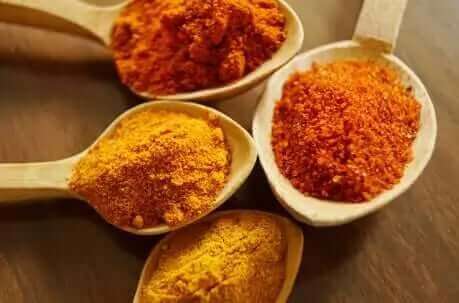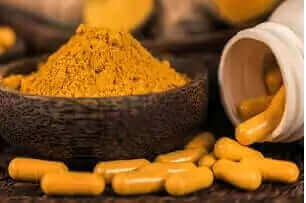Curcumin Benefits Guide: Complete Overview of This Powerful Anti-Inflammatory Compound
Curcumin stands as one of nature's most potent healing compounds, offering remarkable anti-inflammatory and antioxidant properties that have captured the attention of researchers and health enthusiasts worldwide. As the active polyphenol found in turmeric root, curcumin provides the golden spice with its distinctive color and extraordinary therapeutic potential. Understanding the comprehensive benefits of curcumin can transform your approach to natural health and inflammation management, offering hope for those seeking effective alternatives to conventional treatments.
The journey of discovering curcumin benefits begins with recognizing that this remarkable compound has been treasured for millennia in traditional Chinese and Indian healing systems. Modern scientific research has validated many of these traditional uses while uncovering new applications that extend far beyond what ancient healers could have imagined. From supporting heart health and preventing chronic diseases to enhancing cognitive function and providing powerful antioxidant protection, curcumin represents a bridge between ancient wisdom and cutting-edge nutritional science.
This comprehensive guide explores the extensive health benefits of curcumin, practical strategies for maximizing its absorption and effectiveness, and evidence-based recommendations for incorporating this powerful compound into your wellness routine. Whether you're dealing with inflammation, seeking disease prevention, or simply wanting to optimize your health naturally, understanding how curcumin works and how to use it effectively can provide transformative benefits for your long-term wellbeing.
Understanding Curcumin: The Golden Compound That Changes Everything
Despite the similarity in their names, curcumin and cumin represent completely different compounds with distinct characteristics and health benefits. Curcumin is the primary active polyphenol found in turmeric, a rhizome belonging to the ginger family that has been cultivated for thousands of years for both culinary and medicinal purposes.
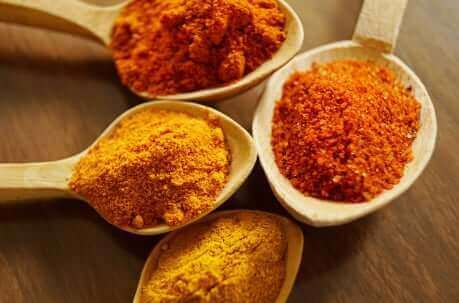
The vibrant golden hue that characterizes turmeric comes directly from curcumin and related curcuminoids, which comprise approximately 2-9% of turmeric's total weight. When turmeric root is crushed or grated, these compounds are released, giving dishes their distinctive deep, golden color while providing powerful therapeutic benefits that extend far beyond simple seasoning.
In contrast, cumin represents an entirely different spice from the parsley family, typically sold in supermarkets as small brown seeds or powdered form. While both spices offer strong aromas and flavors commonly used in South Asian and international cuisines, their health benefits and therapeutic applications differ significantly, making it important to understand these distinctions when seeking specific health outcomes.
The unique molecular structure of curcumin allows it to interact with multiple biological pathways simultaneously, explaining its broad spectrum of health benefits. This multi-target approach makes curcumin particularly valuable for addressing complex health conditions that involve multiple underlying mechanisms, such as chronic inflammation, oxidative stress, and metabolic dysfunction.
The Science Behind Curcumin's Extraordinary Health Benefits
The remarkable health benefits of curcumin stem from its powerful anti-inflammatory and antioxidant capabilities, which work synergistically to address many of the underlying factors that contribute to chronic disease and aging. According to research published in Critical Reviews in Food Science and Nutrition in 2017, curcumin's therapeutic potential has attracted enormous scientific interest, resulting in thousands of studies investigating its health applications.
As an antioxidant, curcumin demonstrates exceptional ability to seek out and neutralize free radicals throughout the body. These harmful molecules can cause significant cellular damage when left unchecked, contributing to chronic diseases, accelerated aging, and tissue deterioration. Curcumin's antioxidant activity helps protect cells from this oxidative damage while supporting the body's natural repair and regeneration processes.
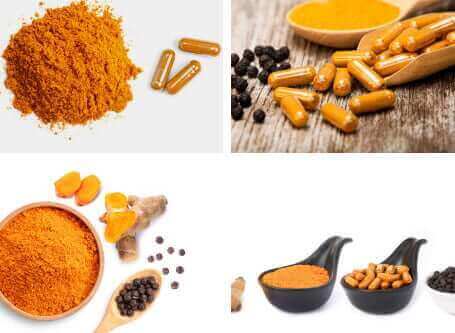
The anti-inflammatory properties of curcumin may be even more significant than its antioxidant effects, as chronic inflammation underlies virtually every major disease affecting modern populations. Research published in Foods in 2017 highlighted curcumin's ability to modulate inflammatory pathways at the cellular level, potentially helping prevent and manage conditions ranging from arthritis and heart disease to neurodegenerative disorders and certain cancers.
Due to its comprehensive anti-inflammatory properties, curcumin shows potential for preventing and managing numerous serious health conditions. Studies suggest it may help protect against Alzheimer's disease, Parkinson's disease, various forms of cancer, metabolic syndrome, arthritis, and cardiovascular disease. Additionally, research indicates curcumin can reduce exercise-induced inflammation and muscle pain, making it valuable for active individuals seeking natural recovery support.
Comprehensive Curcumin Benefits for Optimal Health
Cardiovascular Health and Heart Disease Prevention
Curcumin's cardiovascular benefits represent one of its most well-researched applications, with studies consistently demonstrating its ability to support heart health through multiple mechanisms. The compound helps improve endothelial function, reduce arterial inflammation, and support healthy cholesterol levels, addressing many of the risk factors that contribute to heart disease development.
Research indicates that curcumin can help prevent the oxidation of LDL cholesterol, a critical step in the development of atherosclerosis and coronary artery disease. By protecting against this oxidative damage while reducing inflammation in blood vessel walls, curcumin provides comprehensive cardiovascular protection that may significantly reduce heart disease risk.
The anti-inflammatory effects of curcumin also extend to supporting healthy blood pressure regulation and improving overall circulatory function. These cardiovascular benefits make curcumin particularly valuable for individuals with family histories of heart disease or those seeking proactive approaches to cardiovascular health maintenance.
Brain Health and Cognitive Function Support
Emerging research on curcumin's neuroprotective properties reveals its potential for supporting brain health and protecting against age-related cognitive decline. The compound's ability to cross the blood-brain barrier allows it to provide direct antioxidant and anti-inflammatory protection to brain tissues, which are particularly vulnerable to oxidative damage and inflammation.
Studies suggest that curcumin may help prevent the formation of amyloid plaques associated with Alzheimer's disease while supporting healthy brain aging through enhanced cellular protection and improved neural communication. This neuroprotective potential makes curcumin an important consideration for anyone concerned about maintaining cognitive function throughout the aging process.
The cognitive benefits of curcumin may also extend to supporting mood regulation and stress resilience, as inflammation in the brain has been linked to depression and anxiety disorders. By reducing neuroinflammation and supporting healthy neurotransmitter function, curcumin may contribute to better mental health and emotional wellbeing.
Joint Health and Arthritis Management
Perhaps no application of curcumin has been more extensively studied than its use for joint health and arthritis management. The compound's powerful anti-inflammatory properties make it exceptionally effective for reducing joint pain, stiffness, and swelling associated with various forms of arthritis, including osteoarthritis and rheumatoid arthritis.
Clinical studies have demonstrated that curcumin supplementation can provide pain relief and improved mobility comparable to conventional anti-inflammatory medications, but without the gastrointestinal and cardiovascular side effects often associated with long-term NSAID use. This makes curcumin an attractive alternative for individuals seeking natural approaches to joint health management.
The joint-protective effects of curcumin extend beyond simple pain relief to include supporting cartilage health and potentially slowing the progression of degenerative joint conditions. Regular curcumin supplementation may help preserve joint function and mobility throughout the aging process, supporting an active lifestyle and improved quality of life.
Cancer Prevention and Cellular Protection
Curcumin's potential for cancer prevention has generated significant research interest, with laboratory and animal studies suggesting it may help prevent the development and progression of various cancer types. The compound's anti-inflammatory and antioxidant properties, combined with its ability to modulate cellular signaling pathways, create a comprehensive approach to cancer prevention at the cellular level.
Research indicates that curcumin may help prevent cancer through multiple mechanisms, including inhibiting tumor growth, preventing metastasis, and supporting the body's natural ability to eliminate abnormal cells. While more human clinical trials are needed to fully establish these effects, the existing research provides compelling evidence for curcumin's potential as a natural cancer-preventive compound.
The cellular protective effects of curcumin also extend to supporting healthy DNA repair mechanisms and protecting against environmental toxins that can contribute to cancer development. This comprehensive cellular protection makes curcumin valuable for anyone seeking proactive approaches to long-term health maintenance and disease prevention.
Understanding the Bioavailability Challenge
One significant challenge with curcumin supplementation lies in its naturally low bioavailability, meaning that much of the compound is rapidly metabolized and eliminated from the body before it can provide therapeutic benefits. This limitation has led to extensive research into methods for enhancing curcumin absorption and effectiveness.
The breakthrough discovery that curcumin works best when combined with piperine, a compound found in black pepper, has revolutionized curcumin supplementation. Piperine can increase curcumin absorption by up to 2000%, dramatically improving its bioavailability and therapeutic potential. This combination has become standard in high-quality curcumin supplements.
Additional strategies for improving curcumin absorption include combining it with healthy fats, using specialized delivery systems, and developing enhanced formulations that protect the compound during digestion. These advances have made it possible to achieve therapeutic curcumin levels that were previously difficult to obtain through supplementation alone.
Understanding bioavailability factors helps explain why some people experience dramatic benefits from curcumin supplementation while others notice minimal effects. Choosing the right formulation and taking it properly can make the difference between therapeutic success and disappointment with curcumin supplementation.
Nutritional Profile and Additional Benefits
Beyond its primary active compounds, turmeric provides valuable nutrients that contribute to overall health and wellbeing. The spice is particularly rich in iron and manganese, two essential minerals that support various physiological functions throughout the body.
A single tablespoon of ground turmeric provides an impressive 93% of the recommended daily intake for manganese and 29% of the daily value for iron. Manganese plays crucial roles in bone health, wound healing, and antioxidant enzyme function, while iron is essential for oxygen transport and energy production at the cellular level.
These additional nutrients complement curcumin's therapeutic effects, creating a comprehensive nutritional profile that supports multiple aspects of health simultaneously. This synergistic effect demonstrates why whole food sources and high-quality extracts often provide superior benefits compared to isolated compounds.
The mineral content of turmeric also contributes to its traditional use as a general health tonic, supporting energy levels, immune function, and overall vitality. These broader nutritional benefits make curcumin supplementation valuable even beyond its specific anti-inflammatory and antioxidant properties.
Cumin vs. Curcumin: Understanding the Important Differences
The confusion between cumin and curcumin extends beyond their similar names to include misunderstanding about their respective health benefits and applications. While both spices offer health advantages, they work through different mechanisms and provide distinct therapeutic benefits.
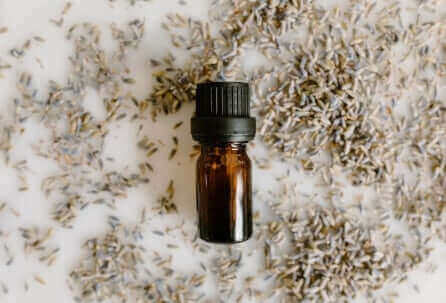
Cumin, as an ingredient in curry powder and chili powder, offers its own unique health advantages primarily related to digestive health and antimicrobial activity. According to research published in Critical Reviews in Food Science and Nutrition in 2015, cumin's primary active component, cumin aldehyde oil, possesses significant antibacterial and antifungal properties.
The antimicrobial effects of cumin are particularly noteworthy for their ability to inhibit various harmful bacteria, including E. coli, making cumin a valuable natural food preservative. These properties, combined with cumin's traditional use for digestive support, demonstrate its value as both a culinary spice and therapeutic agent.
Research has also investigated cumin's potential for treating gastrointestinal issues, with one study published in the Global Journal of Health Science in 2016 finding that cumin was equally effective as peppermint and milk of magnesia for relieving GI distress in women following cesarean sections. This digestive support represents cumin's primary therapeutic application.
Like turmeric, cumin also provides significant iron content, with one tablespoon of cumin seeds supplying 22% of the daily value for this essential mineral. This makes both spices valuable for supporting healthy iron levels, particularly for individuals at risk of iron deficiency.
Practical Applications: Using Curcumin and Cumin Together
Rather than choosing between curcumin and cumin, many culinary traditions successfully combine these powerful spices to create dishes that provide comprehensive health benefits while delivering exceptional flavor profiles. Indian and Thai curries represent perfect examples of how these spices work synergistically in both taste and therapeutic potential.
For those seeking to incorporate both spices into their regular diet, roasting vegetables like carrots, cauliflower, eggplant, and potatoes with olive oil, turmeric, cumin, and garlic creates a substantial, vibrant side dish that provides anti-inflammatory and digestive benefits. The combination of healthy fats from olive oil also enhances curcumin absorption.
Creative combinations with other spices can further enhance the therapeutic and culinary value of both compounds. Cumin pairs excellently with oregano in Mexican dishes, while turmeric combines beautifully with black pepper, garlic, and olive oil to create tangy salad dressings or vegetable dips that provide enhanced curcumin bioavailability.
These practical applications demonstrate how traditional cooking methods often optimize the health benefits of spices through natural combinations that enhance absorption and provide complementary therapeutic effects. Learning from these time-tested approaches can help modern users maximize the benefits of both curcumin and cumin.
Optimizing Curcumin Supplementation for Maximum Benefits
Achieving optimal results from curcumin supplementation requires understanding proper dosing, timing, and formulation selection. Research suggests that effective therapeutic doses typically range from 500-1000mg of curcumin daily, though individual needs may vary based on health goals and specific conditions being addressed.
The timing of curcumin supplementation can influence its effectiveness, with many experts recommending taking it with meals to enhance absorption and reduce the likelihood of stomach upset. The presence of dietary fats during consumption can significantly improve curcumin bioavailability, making meal timing particularly important.
Quality considerations become crucial when selecting curcumin supplements, as the market includes products with widely varying potencies, purities, and bioavailability enhancement strategies. Look for supplements that provide standardized curcuminoid content, third-party testing results, and proven absorption enhancement methods.
Professional-grade formulations like those offered by RevGenetics often provide superior bioavailability and therapeutic potential compared to basic curcumin products. These advanced formulations may include specialized delivery systems, enhanced absorption technologies, or combination ingredients that maximize curcumin's therapeutic benefits.
Safety Considerations and Potential Interactions
While curcumin demonstrates excellent safety profiles for most individuals, certain considerations and potential interactions require attention, particularly for those taking medications or dealing with specific health conditions. Understanding these factors ensures safe and effective curcumin use.
Curcumin can enhance the effects of blood-thinning medications, potentially increasing bleeding risk for individuals taking anticoagulants or antiplatelet drugs. Anyone taking such medications should consult healthcare providers before beginning curcumin supplementation and may require monitoring for bleeding complications.
Some individuals may experience stomach upset with high doses of curcumin, particularly when taken on an empty stomach. Starting with lower doses and gradually increasing while monitoring tolerance can help minimize digestive issues while allowing the body to adapt to supplementation.
Curcumin may also affect blood sugar levels and could potentially interact with diabetes medications. Individuals with diabetes or blood sugar regulation issues should work with healthcare providers to monitor glucose levels when beginning curcumin supplementation.
Future Research Directions and Emerging Applications
The future of curcumin research holds tremendous promise for expanding our understanding of this remarkable compound's therapeutic potential. Ongoing studies are investigating new applications, optimal dosing strategies, enhanced delivery methods, and combination therapies that could further amplify curcumin's health benefits.
Emerging research areas include curcumin's potential for supporting healthy aging, enhancing athletic performance, improving skin health, and supporting immune function. These expanding applications may reveal new benefits that extend current understanding of curcumin's therapeutic scope.
Advanced formulation technologies continue to improve curcumin bioavailability and effectiveness, with researchers developing novel delivery systems that could provide superior therapeutic outcomes with lower doses. These innovations may make curcumin supplementation more accessible and cost-effective for broader populations.
Personalized medicine approaches may eventually allow for customized curcumin protocols based on individual genetic factors, health status, and specific therapeutic goals. This precision approach could optimize results while minimizing unnecessary supplementation or potential interactions.
Frequently Asked Questions About Curcumin
What is curcumin and how is it different from turmeric?
Curcumin is the active polyphenol compound found in turmeric root that gives it its golden color and therapeutic properties. While turmeric is the whole spice containing 2-9% curcumin, curcumin extracts provide concentrated amounts of this powerful anti-inflammatory compound for maximum health benefits.
What are the main health benefits of curcumin?
Curcumin offers powerful anti-inflammatory and antioxidant benefits that may help prevent heart disease, arthritis, Alzheimer's disease, certain cancers, and metabolic syndrome. It also supports joint health, reduces exercise-induced muscle pain, and provides cellular protection against free radical damage.
How can I improve curcumin absorption and bioavailability?
Curcumin absorption can be significantly improved by taking it with piperine (black pepper extract), consuming it with healthy fats, or choosing specialized formulations with enhanced bioavailability. Some supplements increase absorption by up to 2000% compared to standard curcumin.
What's the difference between curcumin and cumin?
Despite similar names, curcumin and cumin are completely different. Curcumin is the active compound in turmeric with anti-inflammatory properties, while cumin is a separate spice from the parsley family with antibacterial and digestive benefits. They serve different culinary and health purposes.
How much curcumin should I take daily?
Research suggests effective curcumin doses range from 500-1000mg daily for general health benefits. However, optimal dosing depends on individual needs, health goals, and the specific formulation used. Consult healthcare providers for personalized recommendations, especially for therapeutic applications.
Can curcumin help with arthritis and joint pain?
Yes, curcumin's powerful anti-inflammatory properties make it highly effective for arthritis and joint pain relief. Studies show curcumin can reduce inflammation markers, improve joint mobility, and provide pain relief comparable to some anti-inflammatory medications without the side effects.
Are there any side effects or interactions with curcumin?
Curcumin is generally safe for most people, but it can interact with blood-thinning medications and may increase bleeding risk. Some people may experience stomach upset with high doses. Always consult healthcare providers before starting curcumin, especially if taking medications or having surgery.
Can curcumin help prevent cancer?
Research suggests curcumin may help prevent various types of cancer through its anti-inflammatory and antioxidant properties. Laboratory and animal studies show promising results, but more human clinical trials are needed to fully establish curcumin's cancer-preventive effects.
How long does it take to see benefits from curcumin supplementation?
Some people notice anti-inflammatory benefits within 1-2 weeks of consistent curcumin use, while more significant health improvements may take 4-8 weeks. Joint pain relief often appears within 2-4 weeks, and long-term protective benefits develop with sustained use over months.
What should I look for when choosing a curcumin supplement?
Choose curcumin supplements with enhanced bioavailability (like those with piperine or specialized delivery systems), third-party testing for purity, standardized curcuminoid content, and reputable manufacturing. Look for products that specify the percentage of active curcuminoids and absorption enhancement methods.
Your Journey to Better Health with Curcumin
The remarkable health benefits of curcumin represent one of nature's most powerful tools for supporting optimal health and preventing chronic disease. From its potent anti-inflammatory and antioxidant properties to its comprehensive benefits for heart health, brain function, and joint comfort, curcumin offers a natural approach to wellness that addresses health at the cellular level.
Understanding the differences between curcumin and related compounds like cumin helps ensure you're making informed choices about incorporating these powerful spices into your health routine. While bot


